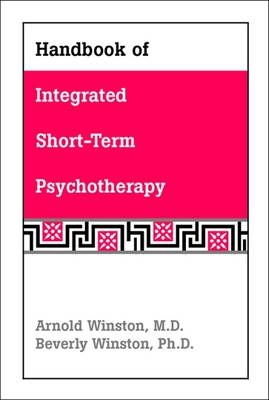
Handbook of Integrated Short-Term Psychotherapy
American Psychiatric Association Publishing (Verlag)
978-0-88048-814-3 (ISBN)
In the past, short-term—or brief—treatment was practiced by few clinicians, its power relatively unknown. Today, the dual pressures of managed care and patient preference make it imperative to reconsider brief treatment, which has proven to be as effective as long-term therapy for many disorders and problems.
This remarkable guide for conducting short-term psychotherapy details the tools and techniques of brief psychotherapy, addressing four main areas:
• Understanding, conceptualizing, and formulating the patient's problems—Brief psychotherapy requires a concise formulation of the patient's problems within the first hours of treatment to ensure that the therapist understands and can focus on the patient's core problems early in therapy. The authors describe a detailed method of patient assessment and case formulation as the first building block in learning the fundamentals of short-term treatment.
• Setting realistic treatment goals—Brief psychotherapy sets explicit goals from the beginning, based on a thorough evaluation that incorporates the patient's wishes, desires, and dissatisfactions and an agreement about what the work of therapy will encompass.
• Knowing what to say to patients (i.e., technique)—Brief psychotherapy requires focused, concrete techniques within clear guidelines for each stage of treatment. With numerous clinical examples, the authors define a unified treatment that emphasizes the differential use of therapeutic interventions, such as cognitive-behavioral and interpersonal techniques, encompassing the continuum of interpretative to supportive approaches. They also offer an in-depth look into the therapeutic process: they use patient-therapist dialogues—including both patient and therapist comments and accompanying third-voice explanations—to chronicle the progress of four patients through the initial, middle, and termination phases of psychotherapy.
• Maintaining a positive therapeutic alliance—Although the quality of the therapeutic alliance is the best predictor of outcome in both traditional and brief psychotherapy, it is absolutely vital to the success of brief psychotherapy. The authors present a framework for maintaining and enhancing this alliance, including how to heal misunderstandings.
Concluding with a collaborative model and summary of the past 20 years' research on integrated treatment, this volume is more than a valuable clinical guide for integrated evaluation and treatment; it is also a practical blueprint for promoting and maintaining a flexible, positive patient/therapist relationship. As such, it will prove indispensable not only to practitioners, but also to educators and students.
Arnold Winston, M.D., is Chairman of the Department of Psychiatry at Beth Israel Medical Center and is Professor and Vice Chairman of the Department of Psychiatry at the Albert Einstein College of Medicine in New York, New York. Beverly Winston, Ph.D., is Supervising Psychotherapist of the Department of Psychiatry at Beth Israel Medical Center; Assistant Clinical Professor of Psychiatry at the Albert Einstein College of Medicine; Adjunct Associate Professor of Social Work at New York University; and Faculty at the New York School for Psychoanalytic Psychotherapy and Psychoanalysis in New York, New York.
Preface
Acknowledgments
Chapter 1. History of Brief Psychotherapy
Chapter 2. Theoretical Concepts: An Integrated Approach
Chapter 3. Assessment and Case Formulation
Chapter 4. The Therapeutic Relationship
Chapter 5. Essential Elements and Interventions
Chapter 6. The Partnership: Medication and Psychotherapy
Chapter 7. Initial Phase of Treatment
Chapter 8. Midphase of Treatment
Chapter 9. Termination Phase of Treatment
Chapter 10. Research in Brief Psychotherapy
In Conclusion
References
Index
| Erscheint lt. Verlag | 2.3.2002 |
|---|---|
| Zusatzinfo | No |
| Verlagsort | VA |
| Sprache | englisch |
| Maße | 152 x 229 mm |
| Gewicht | 413 g |
| Themenwelt | Medizin / Pharmazie ► Medizinische Fachgebiete ► Psychiatrie / Psychotherapie |
| ISBN-10 | 0-88048-814-X / 088048814X |
| ISBN-13 | 978-0-88048-814-3 / 9780880488143 |
| Zustand | Neuware |
| Haben Sie eine Frage zum Produkt? |
aus dem Bereich


